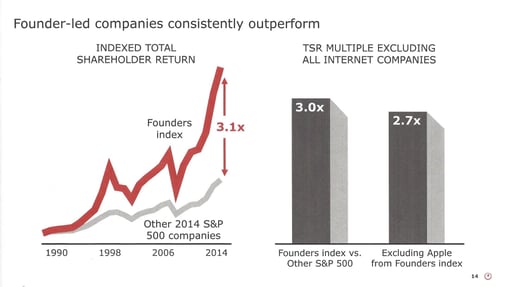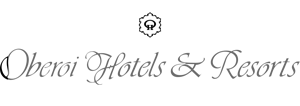 15 years consulting and research at Bain & Company helping customers Scale Up, provides Chris Zook with insights into how businesses fail to utilize the distinctive, powerful assets, and capabilities they own in their Core Business.
15 years consulting and research at Bain & Company helping customers Scale Up, provides Chris Zook with insights into how businesses fail to utilize the distinctive, powerful assets, and capabilities they own in their Core Business.
Chris Zook is the Co-Author of The Founders Mentality: How To Overcome The Predictable Crises Of Growth.
.jpg?width=160&height=160&name=The%20Founders%20Mentality%20(Book).jpg) Ideas like Zook’s come to life, as he shared examples of each of the 3 Barriers that impede business’ growth.
Ideas like Zook’s come to life, as he shared examples of each of the 3 Barriers that impede business’ growth.
I’ll divide his presentation into two blogs to share as many examples as possible to help you understand how your decisions to steer your business away from the Founders Mentality adversely affect your business.
Zook shared why keeping the Founders Mentality is so critical with statistics.
Founder-Led Companies Consistently Outperform
 As you can see by the graphic, Founder-led companies consistently outperform other S&P 500 companies. Zook's associates at Bain and company argued this couldn’t be true. His data had to be slanted by the influence of tech stocks. He excluded tech stocks and even withdrew Apple from the index. Still Founders outperform anywhere from 2.7 to 3.0.
As you can see by the graphic, Founder-led companies consistently outperform other S&P 500 companies. Zook's associates at Bain and company argued this couldn’t be true. His data had to be slanted by the influence of tech stocks. He excluded tech stocks and even withdrew Apple from the index. Still Founders outperform anywhere from 2.7 to 3.0.
Founder’s Mentality is the externally oriented mind-set and set of organizing principles the founder has when building a leading business – combining an insurgent’s bias to act and to disrupt the status quo combined with an owner’s desire to focus on the few things that get a return. What founder’s do intuitively (the natural benefits of Founder’s Mentality) is the ability to maintain focus on the few things that matter, mobilize the required resources, and take decisive action in the market.
What are the elements of the Founders Mentality?
Watch his short 3 minute video from Bain.
- Insurgency – This is a focus on a Bold Mission (Zook shared a startling figure: Only 13% Of Workforce Have Commitment To The Purpose Of The Company They Work For) Zook shared a good indicator of the people who are not committed: Who’s Cars are turned out in you Parking Lot? (In other words who backed in to their parking spot, so they can get out as quickly as possible.) The business is on a mission to transform industries and eco-systems on behalf of the target customer – absolute clarity on the ‘big why
- Front Line Obsession – Customer Intimacy. Frontline obsession is manifested in three ways:
- Constantly translate strategy and organizational decisions into frontline routines and behaviors to serve customers better and earn customer advocacy and loyalty.
- Leaders obsess about the key players in their organization who deliver the value to customers to ensure these people are the “heroes.” Leaders do not allow organizational layers or complexity to distract them from this focus on the talent that really matters. Frontline empowerment is a top priority—these companies give their people the authority and resources they need to do what it takes to serve customers better.
- This leads to relentless experimentation—hundreds of experiments by customer-focused, empowered employees continually innovating and working with their customers to devise new solutions, better service, and better products.
- Owners Mindset - All leaders act as though it is their money, exhibit a strong aversion to bureaucracy, institutional entitlement, and complexity. Bias to action, but eager to minimize risk until pilots are proven and then rollout winning models faster than the competition.
If you’re looking at these three elements, there’s enough to accomplish here to make your business stronger. Zook provided specific Business examples of each element as seen on the picture here. (Much of the material here is taken from Zook’s PowerPoint he shared with Gazelles Coaches.
Founders Mentality Examples: Nike, Oberoi, ABI

 Nike’s bold mission was to make high performance shoes for sweaty athletes. This was also reinforced by Nike’s repeatable model (spikiness), which focuses on 4 core areas of differentiation (brand, technology & IP, Innovation, and logistics/ supply chain), and a three-step approach to adjacencies:
Nike’s bold mission was to make high performance shoes for sweaty athletes. This was also reinforced by Nike’s repeatable model (spikiness), which focuses on 4 core areas of differentiation (brand, technology & IP, Innovation, and logistics/ supply chain), and a three-step approach to adjacencies:
- Step 1 – move into new sport footwear
- Step 2 – Seek celebrity endorsement of the "hottest" star or team – Jordan was a rookie when he signed with Nike
- Step 3 – Leverage endorsement to move into apparel and later into equipment
 Oberoi – Front-line obsession - it’s the mindset of young M.S. Oberoi, who grew up poor in what is now Pakistan. The Oberoi Group is one of the world’s great luxury hotel companies. Oberoi founded the hotel chain in 1934 after raising the money to buy a hotel in Calcutta whose price was rock bottom because it had been hit by a cholera epidemic—the kind of classically courageous move that young insurgents make. The length of bellmen’s trousers, the temperature of the tea, the freshness of the flowers, the placement of signage: Oberoi obsessed about every detail that might affect the customer experience in his hotels.
Oberoi – Front-line obsession - it’s the mindset of young M.S. Oberoi, who grew up poor in what is now Pakistan. The Oberoi Group is one of the world’s great luxury hotel companies. Oberoi founded the hotel chain in 1934 after raising the money to buy a hotel in Calcutta whose price was rock bottom because it had been hit by a cholera epidemic—the kind of classically courageous move that young insurgents make. The length of bellmen’s trousers, the temperature of the tea, the freshness of the flowers, the placement of signage: Oberoi obsessed about every detail that might affect the customer experience in his hotels.
Even in his eighties he was still visiting them to make sure his employees were getting everything right. In doing so, he got his employees to share in his obsession—which is why, more than a decade after his death, Oberoi hotels are still so successful. In 2015, Travel & Leisure named Oberoi the best hotel brand in the world, and its hotel in Udaipur, India as the best hotel in the world. The founder’s mentality lives on.
At any Oberoi hotel, the employees on the front line are individually responsible and empowered to directly create value for the customer. During an average stay, an Oberoi customer contacts an average of 42 different staff members, each of whom has the discretion to make decisions as he or she sees fit—even at the level, say, of giving a scarf to a customer on the way to visit a sick friend. To maintain a personal connection with each customer, the staff meet nightly to go over the day’s arrival list, and to review the history and preferences of each new guest. This attention to detail and front-line empowerment are the Oberoi’s great competitive advantages, and the company has succeeded for decades by always making them a priority.
 AB In Bev - Owner’s Mindset - AB InBev's executives devote a lot of time and energy to fostering this culture. As one manager said, "We create restaurant owners, not waiters." When we looked perplexed, he explained: "If you're a restaurant owner and a new restaurant opens across the street serving the same food, how do you feel? You feel like someone is putting your livelihood at risk, threatening you, threatening your family. It's personal, because the restaurant is your dream. But if you are a waiter and a new restaurant opens across the street how do you feel? At best, indifferent. Actually, there's now competition for your services. Many companies inadvertently create waiters. We work tirelessly to create restaurant owners.“
AB In Bev - Owner’s Mindset - AB InBev's executives devote a lot of time and energy to fostering this culture. As one manager said, "We create restaurant owners, not waiters." When we looked perplexed, he explained: "If you're a restaurant owner and a new restaurant opens across the street serving the same food, how do you feel? You feel like someone is putting your livelihood at risk, threatening you, threatening your family. It's personal, because the restaurant is your dream. But if you are a waiter and a new restaurant opens across the street how do you feel? At best, indifferent. Actually, there's now competition for your services. Many companies inadvertently create waiters. We work tirelessly to create restaurant owners.“
ABI has adopted many very visible approaches to embedding the owner’s mind-set. It demands that every budget item be defended in the open every year. It sets aggressive goals around the key profit drivers in every part of the business. It makes sure that leadership targets cascade down and are disaggregated to the next level of leaders, so that every person is clear how they he or she connects to the whole; —no one escapes, there is no place to hide, and all face challenging gaps to fill. It ABI challenges key managers to dream up threats that could disrupt part of their business model, anything from bans on alcohol to on-line delivery services to revolutions such as changes in packaging. It maintains a widely publicized list of ten core principles and their prominent use in the company.
The Founders Mentality is a Strategic Decision requiring tremendous concentration, like Positioning Systems Strategic Discipline One Thing. For help with developing a Founder’s Mentality, defining your Core, contact dwick@postioningsystems.com
Next Blog – Pitfalls to Profitable Growth – More from Chris Zook
There are three barriers, the most profound, predictable, and controllable pitfalls Zook’s sees befall companies with aspirations to scale, and yet seemed to have all of the tools, the market, the talent at their disposal. We’ll share these three pitfalls and examples from companies that fell into them next blog.






.jpeg?width=150&height=135&name=Hand%20with%20marker%20writing%20the%20question%20Whats%20Next_%20(1).jpeg)

